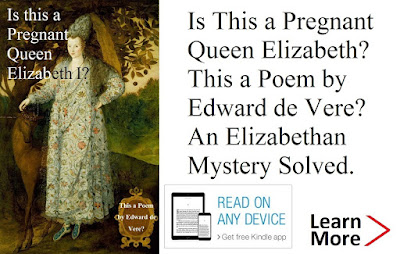Cecil Papers 25/106, Oxford to Burghley; 23 March 1595. [Click here for original spelling.]
My very good Lord. I know you are
not to be troubled at this present with any long letter, wherefore I will only
answer to the matter proposed.
First to that point, where it is
said that the Tinners shall have their money lent them at 8l in the 100,
whereas they have it at 10l in the 100. This is but a mask, for they
have t already at 5 and 6l the 100. And also the matter is of small
importance since the whole sum so commonly lent unto them from diverse engrossers
[=wholesale purchasers] of their Tin, is not among them all, above 3000l.
For that the Country has left at
randole[1] unto an uncertain price as
heretofore. This is likely to return the country to the former discontentment
before it was yielded unto to their own asking, that they should have 24l
certainty (communibus annis) for every 1,000l weight of Tin.
Whereas it is said that that
which is sold in the Realm shall be at the accustomed price, this does but make
a noise and is to no purpose. For in my accounts your lordship shall perceive
in comparing them that there is no other profit raised but on that which is
transported.
Last of all for the 30,000l
which her Majesty is to lay out and the 10,000l my Lord is to disburse.
This so great a sum proportioned
to the quantity of Tin does direct to that whereof I have all this while
motioned, & that is that the rates of the Tin are undervalued to her Majesty,
and to be thought the quantity which is taken from the Mines is far more then
is thought whereof even this day some discovery is made unto me.
For if the Tin were no more than
it is rated, since as your lordships shall find by my account, then 17,000 and
some odd pounds, buys The whole year’s Tin, of which money the one half is to
be employed for the first Coinage, where is Tin for so much money as he sets
down.
Thus it appears that 8000l
or thereabouts, buys up the first coinage, which being turned over, yields itself
back again with the increase, and so does satisfy the whole year. Then all the
rest of the money the merchants and my lord have this whole year in their own
hands, except 3000l thereof more which they lend the country as it is said
for 8l in the 100.
Now let these offers be
considered. My Lord asks 30,000l to be lent him, and I only wish her
Majesty by her own officers to lay out 8000l. My Lord if she will lay
out nothing desires that her Majesty should receive no further profit then her
ordinary revenue for the first year whereby she loses 7000l.
I offer her the first year’s gain
as well as ever after and her Majesty to lay out never a penny.
My lord leaves the Tinners to their
former uncertainty.
I satisfy them with 24l
for every 1000l weight, which is their own demand and agreement.
(sideways in left margin)
Your Lordship’s to Command
(signed) Edward Oxenford
Addressed (O): To the right
honorable and his very good Lord, the Lord Treasurer of England. [seal]
Endorsed: 23 March 1594; Earl Oxford
[1] An
obs. use of “random,” meaning at market rather than fixed price. This might
have been particularly appropriate as a vein of ore was called a “randome” at
the time these letters were written.
Also at Virtual Grub Street:
- A 1572 Oxford Letter and the Player’s Speech in Hamlet. August 11, 2020. “The player’s speech has been a source of consternation among Shakespeare scholars for above 200 years. Why was Aeneas’ tale chosen as the subject?”
- Edward de Vere, Shakespeare and Tycho Brahe. June 9, 2020. “When Brahe was encouraged by his friends and associates to publish a book on the November 1572 supernova for which he is now famous, his answer belonged to his times.”
- Malvolio’s Crow's Feet and “the new Mappe”. October 14, 2019. “Percy Allen’s candidate is not mentioned by any of these parties. The traditionalists, of course, could not consider it possible because it would suggest far too early a date for the play.”
- The Battle Over Shakespeare's Early and Late Plays. September 24, 2018. “The answers to the post-Oxford dilemma, of course, are three.”
- Check out the English Renaissance Article Index for many more articles and reviews about this fascinating time and about the Shakespeare Authorship Question.
- Check out the English Renaissance Letter Index for many letters from this fascinating time, some related to the Shakespeare Authorship Question.




No comments:
Post a Comment